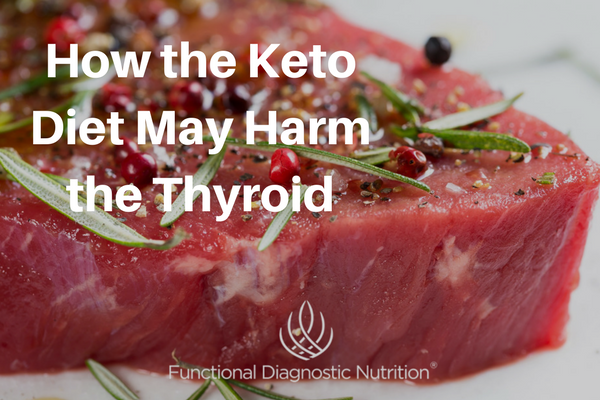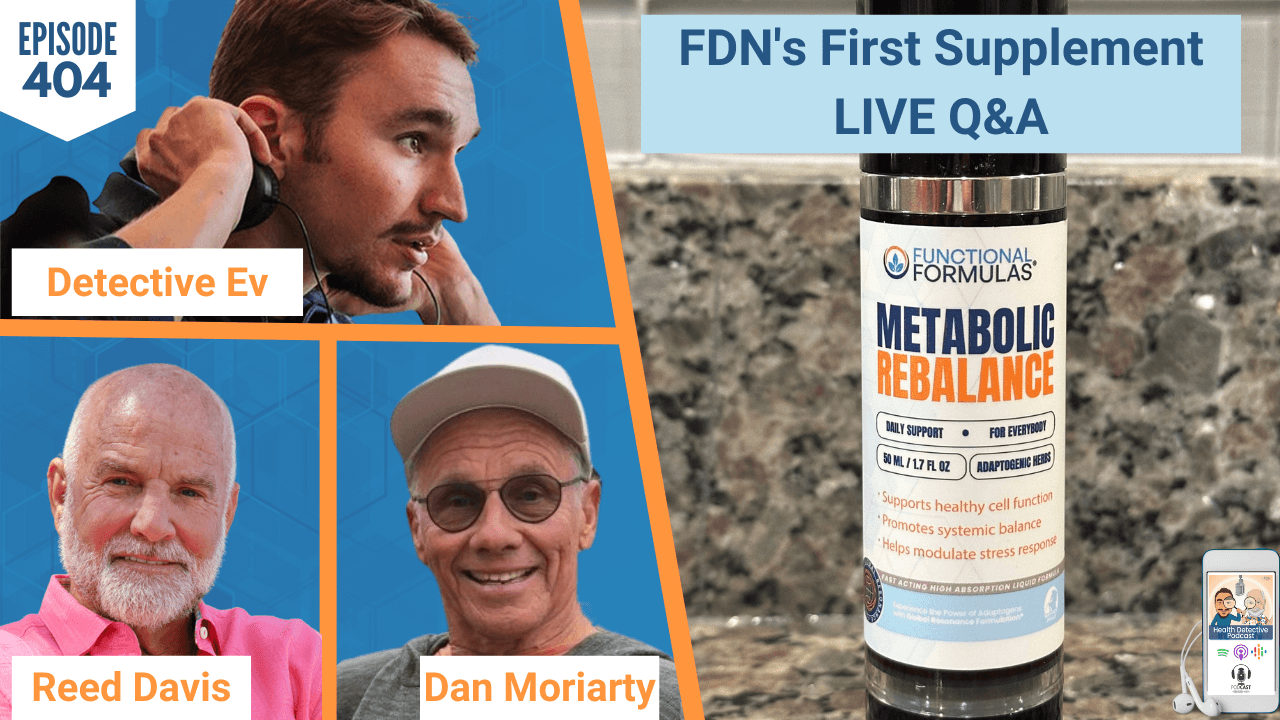Over the past few years the ketogenic diet has become all the rage. The ketogenic, or keto diet is a high fat, moderate protein and low carb diet. It typically limits carbohydrate intake to 30-50 grams a day. Carbohydrates break down during the digestive process into glucose to be used as fuel. But with such a low amount of carbohydrates, the body no longer has adequate glucose to burn as fuel. It resorts to burning ketones instead. This puts the body into a state of ketosis.
Ketosis occurs as the body breaks down fat cells to use as the primary fuel source for the body. Because of this, weight loss and ketosis typically go hand in hand. The use of ketones as the primary food source can also reduce inflammation and has been shown to be beneficial in diseases such as epilepsy and diabetes.
While the keto diet may be promising for some, for many it could compromise thyroid function.
What is the thyroid?
The thyroid is a small, butterfly shaped gland that sits at the base of the neck. It releases hormones that control metabolism. It also plays a key role in other important functions such as body temperature, immunity, reproduction, body weight, breathing, heart rate and cholesterol levels. The thyroid also controls both the central and peripheral nervous systems. Although small, the thyroid influences every organ and cell in the body.
In the US, as many as 20 million people have some form of thyroid disease. And women are 10 times more likely to suffer from thyroid dysfunction than men. Unfortunately, as many as 60 percent of those with thyroid conditions aren’t even aware of the issue.
Hypothyroidism is when the thyroid gland is under-performing and not producing enough thyroid hormone. It is the most common form of thyroid disease in the world. Symptoms may include fatigue, weight gain, memory problems and depression.
There are four main hormones produced by the thyroid; T1, T2, T3, and T4. The two thyroid hormones that regulate the metabolism are T3 (triiodothyronine) and T4 (thyroxine).
When the thyroid isn’t functioning the way it should, symptoms can become severe. To help themselves feel better and lose weight, some may look to the keto diet to help.
Why the keto diet may not be the best choice for hypothyroid
Problems can occur when someone who already has unrecognized thyroid dysfunction reduces carbs to such low levels. Without adequate glucose from carbohydrates, the thyroid cannot do its job. It needs glucose to convert T3 and T4 from inactive forms of the hormone to active forms.
Without the glucose produced from carbohydrates, production of the active forms of these hormones will come to a standstill. This can worsen symptoms for those who have pre-existing hypothyroidism. It can be particularly damaging to those who have an autoimmune thyroid disease such as Hashimoto’s disease.
So restricting carbohydrates with the ketogenic diet may be adding fuel to the fire when it comes to thyroid dysfunction.
A better solution?
What can you do if you have a client that comes to you and wants to jump on the keto bandwagon…but have symptoms of thyroid dysfunction? At FDN, we always emphasize how important it is to stop guessing and start testing! FDN currently offers an advanced course on thyroid function.
In this course we will teach you how to identify the signs of both hypothyroidism and hyperthyroidism from a functional perspective. We’ll show you what questions to ask and teach you how to determine why dysfunction is present. More importantly, we will teach you how to address the cause of the dysfunction.
You’ll learn about the creation, transport and conversion of the thyroid hormone, how other organs and body systems interact with thyroid function to create a healthy body system, and what happens when something goes wrong. By the end of this course, you will know how to recognize the underlying causes of thyroid dysfunction.
Are there tests?
Of course, there are tests! We’ll teach you about the in-depth tests that can help your thyroid detective work, when to test and what the results tell you about the health of your client. We will show you how to interpret the results and understand what those results mean about specific thyroid function. What’s more – you’ll learn and how to evaluate free t4, t3, reverse t3, tsh, tbg and thyroid antibodies. You will also learn methods on how to help your clients home test. We’ll walk you through a few case studies and familiarize you with lab evaluation practices.
Want more? We’ll talk about Hashimoto’s Thyroiditis, Grave’s disease, and the role of the immune system in thyroid autoimmunity. You will learn how commonly prescribed medications can disrupt thyroid function, what nutrients can support it, and other factors that can support thyroid function.
We want you to have all the right tools at your fingertips. We’ll not only give you all that, but we will also give you access to nutritional guidelines for healing thyroid dysfunction and restoring health to your clients, as well as which dietary toxins are the most common offenders in dysfunction. Learn the role of goitrogens in thyroid health, the effect of inflammation, leaky gut & autoimmunity on thyroid function.







